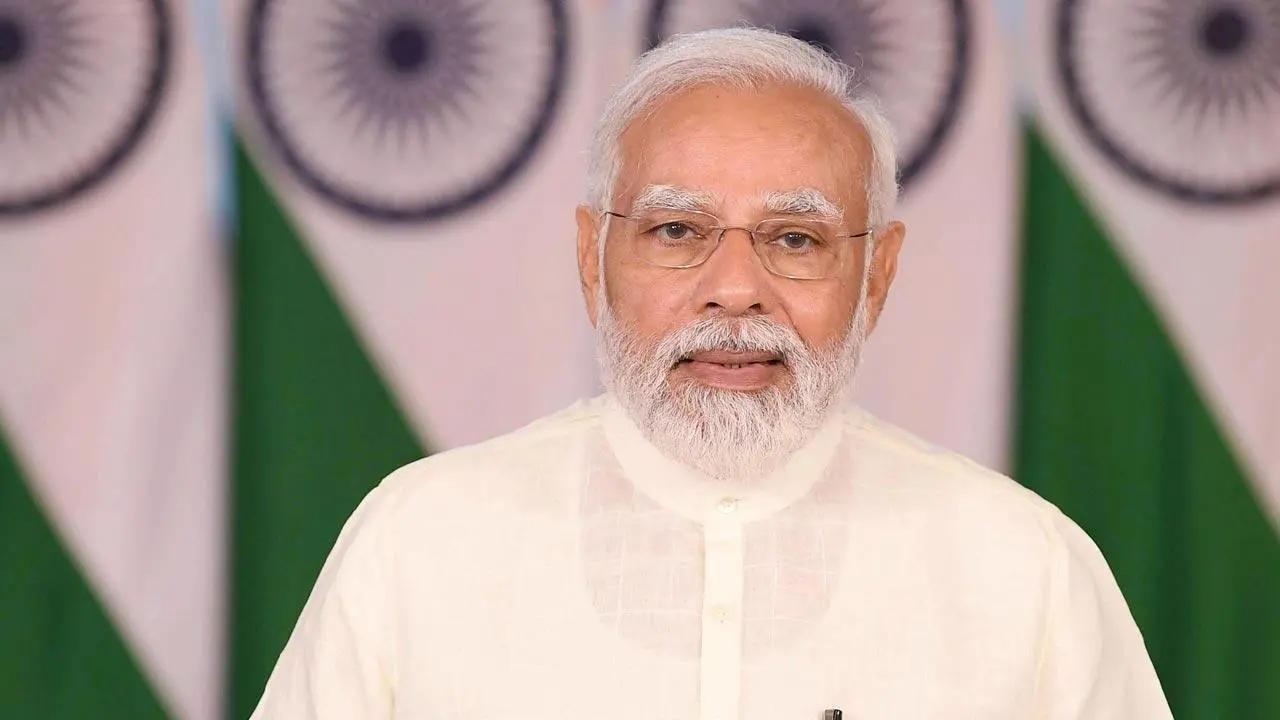In an editorial in party mouthpiece 'Saamana', the Shiv Sena (UBT) said PM Modi on Sunday installed in the new Parliament building the 'Sengol' (sceptre) as a symbol of transfer of power and established his "monarchy", even as the 'Rajdharma' (duty of a king) is not being followed and corruption is being brushed under the carpet

PM Narendra Modi. File Pic
In a searing attack on Prime Minister Narendra Modi, the Shiv Sena (UBT) on Wednesday said citizens of the country were beset by several problems during the nine years of the Bharatiya Janata Party (BJP) government led by him, and said if this rule ends quickly, it will be good for the people.
ADVERTISEMENT
In an editorial in party mouthpiece 'Saamana', the Shiv Sena (UBT) said PM Modi on Sunday installed in the new Parliament building the 'Sengol' (sceptre) as a symbol of transfer of power and established his "monarchy", even as the 'Rajdharma' (duty of a king) is not being followed and corruption is being brushed under the carpet.
"According to Modi and his blind followers, India came into existence after 2014. The party, which had no role in the freedom struggle or building the nation has been in power for the last nine years. The Modi government's nine years of rule proved to be a nightmare for the country and people, and it will bode well for them if this rule comes to an end at the earliest," it said.
In these nine years, the Modi government resorted to note-ban twice and the experiment failed. Unemployment increased during the rule. There was a rise in black money and the promise to provide jobs remained unfulfilled. Black money was used for bringing down governments led by BJP's rival parties in states, it alleged.
PM Modi's blind followers believe that India's stature rose due to all of this, the party added.
"Modi installed the Sengol as a symbol of transfer of power and established his monarchy. How will the stature of the country rise due to this monarchy?" the Uddhav Thackeray-led party asked.
Modi on Sunday asserted the significance of Sengol as a symbol of transfer of power saying that the sceptre will continue to inspire the parliamentarians in their duty.
A ceremonial sceptre, 'Sengol', which is said to have been given to India's first prime minister Jawaharlal Nehru to symbolise the transfer of power in August 1947 by the British, was kept in the Nehru Gallery of the Allahabad Museum and was installed in the Lok Sabha chamber of the new Parliament. Made of silver with a coat of gold, Sengol was originally used to mark the handing over power from one king to another during the Chola dynasty in Tamil Nadu.
This story has been sourced from a third party syndicated feed, agencies. Mid-day accepts no responsibility or liability for its dependability, trustworthiness, reliability and data of the text. Mid-day management/mid-day.com reserves the sole right to alter, delete or remove (without notice) the content in its absolute discretion for any reason whatsoever
 Subscribe today by clicking the link and stay updated with the latest news!" Click here!
Subscribe today by clicking the link and stay updated with the latest news!" Click here!







